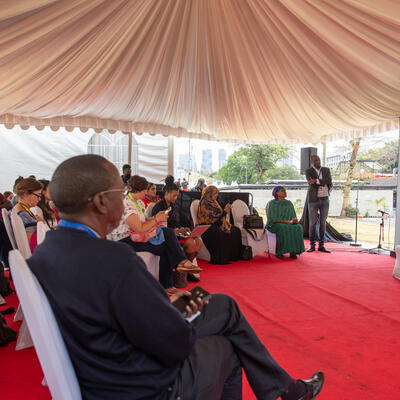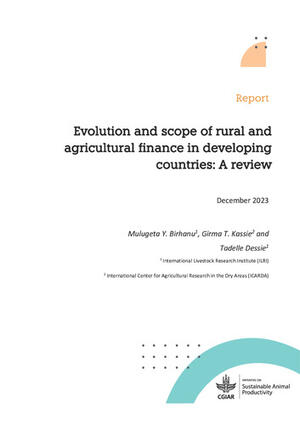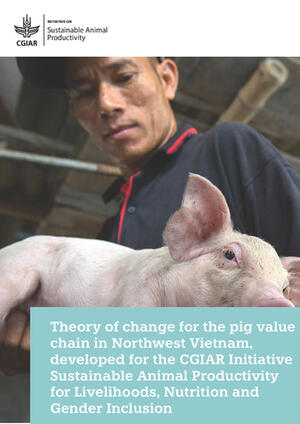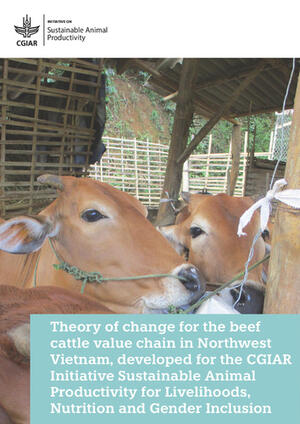
Odisha State unveils its five-year livestock investment master plan
India’s Odisha State has unveiled a five-year livestock sector investment master plan (LMP) to guide appropriate investments in the livestock sector towards the state’s development goals.
Launched at the office of the Fish and Animal Resource Department (FARD) in Bhubaneswar on 12th October 2022, the LMP will complement the livestock development budget and further help in modernizing and growing the Odisha livestock sector.
The exercise to develop a livestock master plan (LMP) for the Odisha State began with a desire by the government of Odisha (GoO) and its Department of Fisheries and Animal Resources Development (FARD) to support and facilitate increases in public and private investment and budget allocations for livestock development.
Through the support of Samagra governance, an Odisha-based consulting firm, the state sought funding from the Bill & Melinda Gates Foundation and engaged the International Livestock Research Institute (ILRI) to provide technical assistance in developing the LMP.
The state’s livestock policy identifies livestock as an important sector critical for poverty reduction, with over 80% of rural households owning livestock, which generates up to 30% of their income in addition to providing milk, meat and eggs–important animal-source foods to many farm households.
The master plan provides an evidence-based justification for public and private investments in a set of recommended priority commodity value chains of the Odisha livestock sector. Among the key investment interventions outlined in the LMP are better genetics, feed and health inputs and services as well as complementary policy support as the most viable interventions to help Odisha achieve improved productivity, production, incomes and employment in the key livestock value chains: cattle for dairy; goat and sheep for red meat; and poultry for white meat and eggs. The selected value chains and investment interventions are based on quantitative analysis of the returns on investment in new and/or additional technology and corresponding policy interventions.
Sirak Bahta, ILRI’s senior agricultural economist and lead scientist in the Odisha LMP project notes that ‘although many efforts have been made to enhance livestock production and create a vibrant sector, livestock productivity in Odisha’, the LMP will help to tackle key livestock sector challenges in the state which include technical and institutional issues, poor animal genetic potential, animal diseases, lack of access to quality feed, inadequate animal health services, lack of organized livestock markets and inadequate extension and training.
Habibar Rahman, ILRI's regional representative for South Asia, added that the ‘targeted five-year investments in new technologies, innovations and policy interventions outlined in the LMP will lead to poverty reduction, economic growth, and food and nutrition security of rural people, especially women and children.’ The LMP is also expected to raise the potential for the export of livestock and related products and social equity contribution, leading to greater empowerment, employment and investment opportunities for women, youth and specific minority ethnic groups.
To tap into the opportunities availed, additional investments in livestock improvement interventions are needed in the areas of feed, health, genetics, extension and marketing and processing. Among the LMP priorities for modernizing the agriculture sector are:
• Improving the availability of quality feed by promoting new and improved varieties of green fodder, increasing the area under green fodder cultivation, enhancing farmers’ knowledge, and updating and establishing a feed quality testing lab.
• Genetic improvement through the selection of local breeds and crossing locals with improved exotic breeds, artificial insemination and sexed semen.
• Increasing the quality and quantity of animal health services and livestock producers’ access to these services through private and/or private–public partnerships to decrease mortality and morbidity.
The LMP will also inform the development planning of FARD, together with other Odisha government livestock sector agencies, as well as development partners /donors, non-governmental organizations, civil society, private sector actors and development banks.
Isabelle Baltenweck, ILRI’s Policies, Institutions and Livelihoods program leader adds that two other countries - Kenya and Gambia are currently developing their LMPs. This is in addition to five other nations, namely Ethiopia, Tanzania, Rwanda and Uzbekistan, as well as the Indian state of Bihar which have over the years, benefitted from ILRI’s expertise in developing LMPs. Some of the LMPs have been developed in collaboration with the Food and Agriculture Organization of the United Nations (FAO) and the French Agricultural Research Centre for International Development (CIRAD).
To access the Odisha LMP, click here, to read the Odisha livestock strategy analysis read here, and for more information on the Odisha livestock sector strategy click here.





















